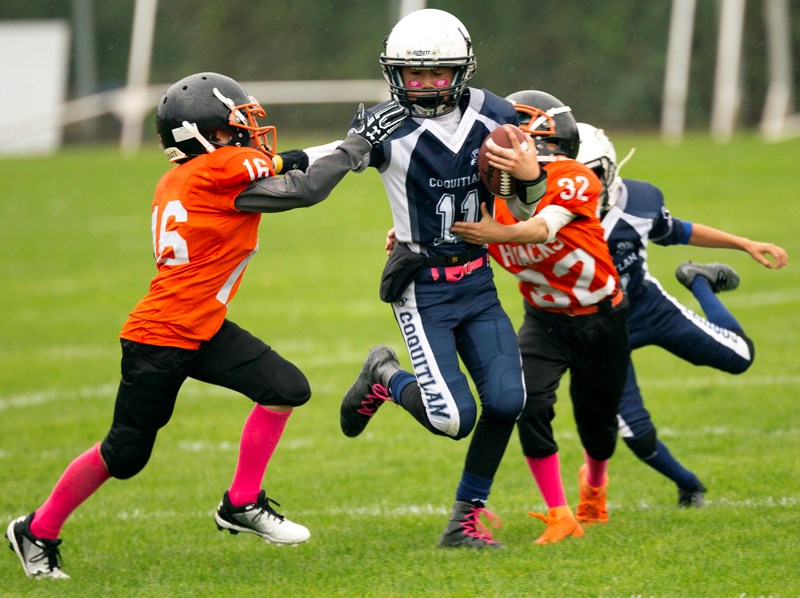Adam Smith likes to say “football isn’ t really just kids running into each other.”
Beginning Aug. 4, the president of Coquitlam Minor Football will see just how much weight there is behind those words.
That’s when about 150 kids, aged 5 to 18, as well as another 30 in the association’s cheer program, begin hitting the field at Mackin Park in small groups for truncated 45-minute workouts twice a week.
There won’t be any body contact allowed until at least September and Smith said he’s hopeful some form of games might start by later that month.
Until then, Smith said, the emphasis will be on conditioning and developing individual skills. Tackling sleds and bags will be sidelined and coaches will be disinfecting footballs after every pass and reception.
“It absolutely is a chance to look at football in a new way,” Smith said.
Already struggling to attract new players because of growing concerns about concussions and injuries, Smith said the new reality of playing football in the middle of a global health crisis is hastening further changes designed to make the sport safer and more attractive to families.
Better equipment and new tackling techniques have mitigated some of the injury risk, he said. Emphasizing skill and better fitness rather than game preparation should continue that momentum.
“It’s a chance to give kids with other skills a chance to perform,” Smith said.
Still, he conceded, registration for the fall program that normally begins in early July, has slipped, and coaches are being challenged to completely change the way they design their practices.
Smith said getting kids outdoors and active remains the paramount driver.
“The idea is to get out and play and have some fun.”
Other elements that will look different include nine-man sides, with team rosters capped at 18.
Smith said not only will the smaller squads make it easier for coaches to keep kids apart, it will also allow the creation of more teams that might be able to at least play against each other if league play doesn’t go ahead but inter-club scrimmages are permitted.
Parents also won’t be allowed to hang around on the sidelines during practices or even linger in the parking lot while they wait.
Smith said that will be a loss as the association has developed into a close-knit family where everyone is keen to participate and help out.
“They’ve been very understanding and receptive to that,” he said. “They’re just excited to get their kids back on the field again.”
As well, the strategies and plays won’t be taught on a whiteboard in a tight huddle. Instead, coaches will likely convene online sessions.
“We’re trying to think outside the box to work up the football knowledge of things,” Smith said.
And while the traditional patterns of preparation for games to be played on Saturdays or Sundays may be absent for awhile, Smith said that’s not necessarily a bad thing.
“The focus is too much on getting out and winning games,” he said. “But community sport is not supposed to be about that, it’s supposed to be about getting kids active and learning a sport.”



